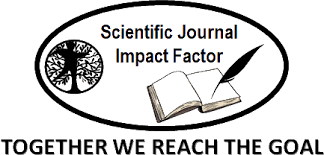CONSTRUCTING A HIERARCHICAL PYRAMID OF CORPORATE SOCIAL RESPONSIBILITY: A MODEL FROM LEGAL AND ECONOMIC TO SPIRITUAL OBLIGATION
DOI:
https://doi.org/10.21776/ub.ijabs.2021.29.1.8Abstract
Purpose — The objective of the study is to construct a hierarchical pyramid of corporate social responsibility which provides a new model from economic to spiritual obligation of a corporation.
Design/methodology/approach — The research method of the study utilizes an imaginary dialogue of the postmodernist paradigm. The imaginary dialogue is used of two persons which are an accountant and a stockholder of a company.
Findings — The result of the study is a hierarchical pyramid of corporate social responsibility constructed. The study also defines detail of the levels. Firstly, the legal obligation is the basic obligation which a corporation has responsible for obeying the law. Secondly, the economic obligation is a corporate responsibility for accelerating economically and profitably for the corporation going concerned. Thirdly, the social philanthropic obligation is responsible for caring society as a large. Fourthly, the environmental obligation is responsible for preserving natural environments like a large. Lastly, the spiritual obligation is responsible for being fully aware of the internal corporation, society, environments, state, and God.
Practical Implications — The hierarchical pyramid is a model of corporation obligations started from the level of legal, economic, Social philanthropic, environmental, and spiritual obligations.
Originality/value — The model of this study is derived from the analysis of corporate obligation using a postmodernist paradigm.
Keywords corporate, economics, postmodernism, economic obligation, spiritual obligation
Paper Type Research Paper.
References
Archel, P., Husillos, J., Larrinaga, C., and Spence, C. 2009. Social disclosure, legitimacy theory, and the role of the state. Accounting, auditing and accountability journal, 22(8), 1284-1307
Aspen Institute. 2001. Where will they lead? MBA student attitudes about business and society.
Barkemeyer, R. 2007. Legitimacy as a key driver and determinant of CSR in developing countries. Paper for the.
Branco, M. C., and Rodrigues, L. L. 2006. Corporate social responsibility and resource-based perspectives. Journal of Business Ethics, 69(2), 111-132.
McWilliams, A., and Siegel, D. 2001. Corporate social responsibility: A theory of the firm perspective. Academy of management review, 26(1), 117-127.
Sukoharsono, Eko Ganis and Dyah Ayu Widhayati. 2017. Sustainability Report and Creating Shared Value (CSV): Sustaining a Business of Urea Fertilizer Manufacture in the Case of Pupuk Kaltim Indonesia. Presented at: SIBR-RDINRRU 2017 (Sydney) Conference on Interdisciplinary Business and Economics Research, 15th - 16th April 2017, Sydney, Australia
Sukoharsono, Eko Ganis. 2007. Green Accounting in Indonesia: Accountability and Environmental Issues. The International Journal of Accounting and Business Society. Vol.15. No 1. August. Pp.23-66.
Sukoharsono, Eko Ganis. 2008. Religion, Spirituality, and Philosophy: How Do They Work For An Accounting World? The 3rd Postgraduate Consortium in Accounting: Socio-Spiritual
…, Postgraduate Program University of Brawijaya, 8-9 September.
Sukoharsono, Eko Ganis. 2009. Spiritual Intelligence Definitions: Availability for Accounting Knowledge. Unpublished Working Paper. Faculty of Economics. University of Brawijaya
Sukoharsono, Eko Ganis. 2010. Metamorfosis Akuntansi Sosial dan Lingkungan: Mengkonstruksi Akuntansi Sustainabilitas Berdimensi Spiritual. Unpublished Naskah Pidato Guru Besar.
Faculty of Economics. University of Brawijaya. Desember.
Sukoharsono, Eko Ganis. 2011. Green Accounting To Be A Serious Business of Accounting Discipline: An Imaginary Neo-Postmodernist Dialogue. Presented at the Plenary Session of the Grand Opening of the Accounting National Symposium (Simposium Nasional Akuntansi – SNA) XIV ACEH, INDONESIA 20–23 July 2011
Sukoharsono, Eko Ganis. 2018. Strategies to Improve the Sustainability in Promoting Transparency, Accountability and Anti-Corruption: An Imaginary Dialogue. The International Journal of Accounting and Business Society. Vol.26. No 1. August.
Sukoharsono, Eko Ganis. 2019. Sustaining a Sustainability Report by Modifying Triple Bottom Line to Pentaple Bottom Line: An Imaginary Research Dialogue. The International Journal of Accounting and Business Society. Vol.27. No 1. April.
Wilmhurst, T. D., and Frost, G. R. 2000. Corporate environmental reporting: A test of legitimacy theory. Accounting, Auditing and Accountability Journal, 13(1), 10-26.
World Business Council for Sustainable Development. 2000. Corporate Social Responsibility: Making Good Business Sense. World Business Council for Sustainable Development: Geneva.
United Nations. 2015. Transforming Our World: The 2030 Agenda for Sustainable Development United Nations. 2016. UN E-Government Survey 2016.
Downloads
Published
How to Cite
Issue
Section
License
Copyright (c) 2021 The International Journal of Accounting and Business Society

This work is licensed under a Creative Commons Attribution 4.0 International License.
The copyright of the received article shall be assigned to the journal as the publisher of the journal. The intended copyright includes the right to publish the article in various forms (including reprints). The journal maintains the publishing rights to the published articles.












